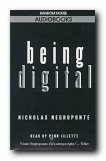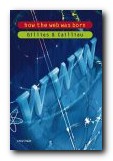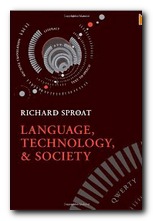readable account of computer and Internet development
This is a fascinating history of the Internet – but given a personal spin. Journalist and academic John Naughton describes the technology of the digital revolution from a user’s point of view. What are the concerns of the average person? How does it all work? At each stage he explains the significance of each development. This approach will be very reassuring for beginners. A Brief History of the Future starts with potted biographies of Vannevar Bush, Norbert Weiner, and J.C.R Licklider as his version of ‘fathers of the Internet’, but it is Paul Baran and Vint Cerf who he tips as most important of all – because they came up with the ideas which pulled it all together.
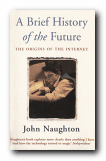 Naughton is good as explaining the details of the technology and engineering, and he puts his professional journalism skills to good use. Whenever necessary, he uses analogies with practical, everyday matters – such as packet-switching being like moving a house and its contents in separate trucks which take different routes to their destination, and then are re-assembled at the other end. He also writes amusingly about the pleasures and perils of email, and takes a refreshingly tolerant view on the issues of censorship and control.
Naughton is good as explaining the details of the technology and engineering, and he puts his professional journalism skills to good use. Whenever necessary, he uses analogies with practical, everyday matters – such as packet-switching being like moving a house and its contents in separate trucks which take different routes to their destination, and then are re-assembled at the other end. He also writes amusingly about the pleasures and perils of email, and takes a refreshingly tolerant view on the issues of censorship and control.
There are some parts of the hard technical developments which he leaves out of his account – politely admitting that he has done so. This seems to me a wise choice, because the type of popular readership at which the book is aimed will welcome his focus on the personal achievements and his own enthusiastic account of engineering history.
Some of the other accounts of the Internet such as Hafner and Lyon’s Where Wizards Stay up Late and Robert Cringley’s Accidental Empires occasionally tax the non-specialist reader in this respect.
Like these other books, his narrative becomes chronologically scrambled at times, maybe because this reflects the disparate locations, enterprises, and time schemes [not to mention funding and government enterprises] involved in the enterprise. Naughton goes out of his way to be scrupulously fair to them all – including even monopolies such IT & T – which like British Telecom put a brake on the development of the Internet for a long time.
There is a particularly interesting chapter on the development of the UNIX operating system, and an explanation of how and why the Usenet News system evolved from it. He also provides interesting introductions to topics such the development of Linux and the Open Source movement which belives that software should be available free of charge.
He is at his best when describing the development of hypertext and the World Wide Web – perhaps because the story flows in an unbroken chronological sequence from Vannevar Bush, via Douglas Engelbart and Ted Nelson, through to Tim Berners-Lee and Marc Andreesson. He ends with a brief glimpse at the current dangers of the commercialisation of the Net and the reasons why it is almost impossible to predict its future.
Naughton offers a very readable, humane, and contagiously enthusiastic account of the Net and its major features. This is a perfect book for anyone who wants to know the background to this major technological revolution.
© Roy Johnson 2001
John Naughton, A Brief History of the Future: The Origins of the Internet, London: Orion Books, 2000, pp.332, ISBN 075381093X
More on computers
More on technology
More on digital media
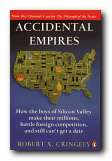
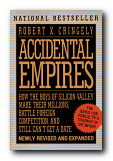 And yet for all that he takes a jokey line, he offers lots of interesting insights – such as the reasons why some software lasts, unlike hardware which on average is replaced every three years. It’s a shame, because he is clearly well informed and at some points has interesting things to say about technological developments and even the philosophy of the internet – but his efforts are dissipated by a lack of focus. He throws off ideas and sketches topics every few pages which warrant a book in themselves, but he can’t quite make up his mind if he’s a historian of technology or a commentator on business methods.
And yet for all that he takes a jokey line, he offers lots of interesting insights – such as the reasons why some software lasts, unlike hardware which on average is replaced every three years. It’s a shame, because he is clearly well informed and at some points has interesting things to say about technological developments and even the philosophy of the internet – but his efforts are dissipated by a lack of focus. He throws off ideas and sketches topics every few pages which warrant a book in themselves, but he can’t quite make up his mind if he’s a historian of technology or a commentator on business methods.